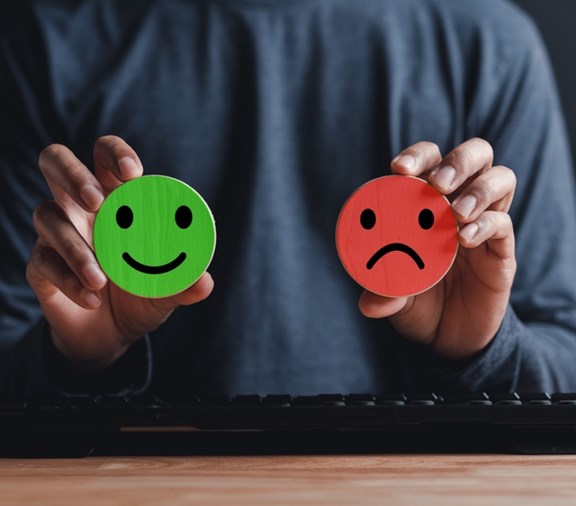
Children and teenagers have a wide range of experiences—and that leads to a wide range of moods.
As they grow, young people must learn to manage changes in their bodies, hormone variations, school and social stress, and many other life events. In response, it is normal for them to feel happy, sad, angry, excited, irritated, inspired, and other emotions.
For people with bipolar disorder, shifts in moods, activity levels, energy, and thinking are extreme. Bipolar disorder may also be called “manic depression.” It usually starts in the late teens, but can happen earlier or later.
This mental illness usually presents with extreme “highs and lows” that can be difficult to manage and cause challenges for your child’s relationships and functioning at home, work, and school.
These high or low states might end within a day or two, or continue for weeks or months.
What is bipolar mania, or “highs?”
When a person has mania, or is in a “manic phase,” they may seem to have too much energy. A child or teenager with mania might:
- Do risky things they normally wouldn’t, like ride their bikes too fast or use drugs.
- Believe they can do something, like play an instrument, that they cannot do.
- Sleep very little without feeling tired.
- Speak very fast and jump from topic to topic.
- Have racing thoughts.
- Become irritated or annoyed easily.
- Try to do too many things at once.
What is bipolar depression, or “lows?”
When children or teens have bipolar disorder, they might experience symptoms of depression for several weeks or months before and/or after manic episodes.
Some signs of depression include:
- Avoiding friends or family, or activities they usually enjoy.
- Feeling very low energy.
- Poor grooming compared to normal habits.
- Feeling worthless.
- Having trouble focusing at school.
- Not being able to sleep, or sleeping too much.
- Low or not appetite, or overeating.
- Thinking about killing themselves.
Some young people might have minor “lows” with periods of normal moods in between mania and depression. Others have symptoms of mania and depression at the same time.
What causes bipolar disorder?
Like other mental illnesses, bipolar disorder often runs in families. If you discuss your child’s symptoms with their doctor, be sure to mention any close relatives who have been diagnosed with it or other mental health conditions.
Also, your child might have a disorder that has similar symptoms but is not actually bipolar disorder. These include:
- Thyroid disorder
- Anxiety
- Post-traumatic stress disorder (PTSD)
- Attention-deficit/hyperactivity disorder (ADHD)
- Substance use disorder
It’s important to discuss symptoms with your treatment providers so they can identify the right diagnosis and treatment options.
How is bipolar disorder treated?
The good news is that bipolar disorder can be managed successfully. It is usually a lifelong illness, but people with the disorder can have happy, normal lives if they follow their care plan. To make sure your child has the best outcome possible, early intervention and treatment are critical.
Some of the treatments are:
- Medications
- Counseling
- Joining a support group
- Getting plenty of sleep, exercise, and nutritious food
- Learning to manage stress
If you are concerned about your child’s moods, talk to their doctor. The sooner they get the help they need, the better.
Need help for depression, anxiety, or other concerns?
Carelon Behavioral Health is here to help you with behavioral health treatment for many mental health and substance use conditions like:
- Depression
- Anxiety
- ADHD
- Alcohol and drug abuse
You do not need approval for individual, family, or group therapy. Also, you do not need a referral from your regular doctor.
English/Spanish interpreter services available 24 hours a day, 7 days a week.
HEALTHfirst STAR Medicaid: 1-800-945-4644
KIDSfirst CHIP: 1-800-945-4644
KIDSfirst CHIP Perinate: 1-888-814-2352



